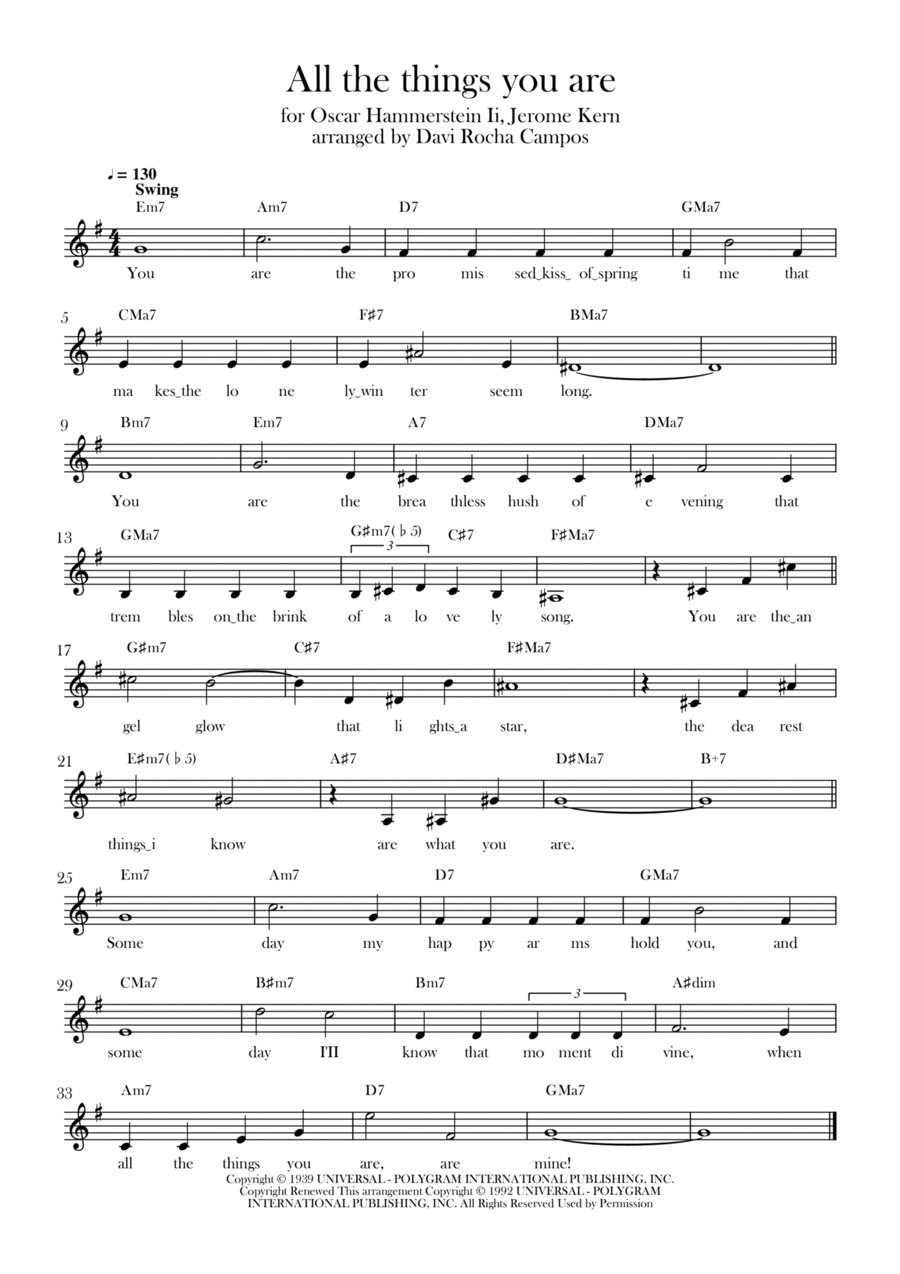C Instrument - Level 2 - Digital Download SKU: A0.1101538 By Jack Leonard with Tommy Dorsey Orchestra. By Jerome Kern and Oscar Hammerstein. Arranged by Davi Rocha Campos. Broadway,Film/TV,Instructional,Jazz,Musical/Show,Standards. Lead Sheet / Fake Book. 1 pages. Davi Rocha Campos #704916. Published by Davi Rocha Campos (A0.1101538). This score is in G, but, the audio is in Ab How to read accidents in sheet music Lesson 9 Signs of change. This class is about sharp #, flat b and bequadro (I can't do this sign by keyboard. That's why it's important to watch this class that will be on the card in the upper right corner). There are still the signs of double sharp x or ## and double flat bb. Don't be folded bequadro. I ask permission to use pleonasm Sharp # function: raises the pitch of the note by a semitone up. Makes the note a semitone higher. B-flat function: lower the pitch of the note by a semitone down. Makes the note a semitone lower. Double sharp x or ## function: raise the pitch of the note by one step. Makes the note a higher pitch. Double-flat bb function: lower the pitch of the note by one tone. Makes the pitch of the note a lower pitch. Bequadro function (I can't make this signal by keyboard. That's why it's important to watch this class that will be on the cards in the upper right corner). Nullify both the sharp (whether it's doubled or not) and the flat function (whether it's doubled or not). The bequadro still cancels the accidents of the key signature. Lesson 10 Bars and bar numbers It is a vertical line placed on the pentagram. It serves to organize the writing of the score in a Cartesian way. When the amount of beats exceeds the measure, it is necessary to place the vertical line and continue in another measure. This is one of the reasons to know the bar count. Another reason is when a large group is going to rehearse a song and it is often necessary to stop the rehearsal in order to make necessary adjustments. In this case, to optimize the rehearsal, the music is not restarted from measure 1, but from a few measures before the adjustments made, whether by the group, conductors, etc. The barline cancels out the accidentals that occur. For example, if an F# note appears in the middle of a piece of music, when that F moves to the next measure, it will no longer be sharp. The barline also cancels the bequadro in this situation, that is, if by chance the music is not set to a key other than C major or A minor, when the bequadro appears precisely on the keynote note, in the next bar if it is not spelled again, the key signature accident takes effect. Lead Sheet / Fake Book. All the things you are.
